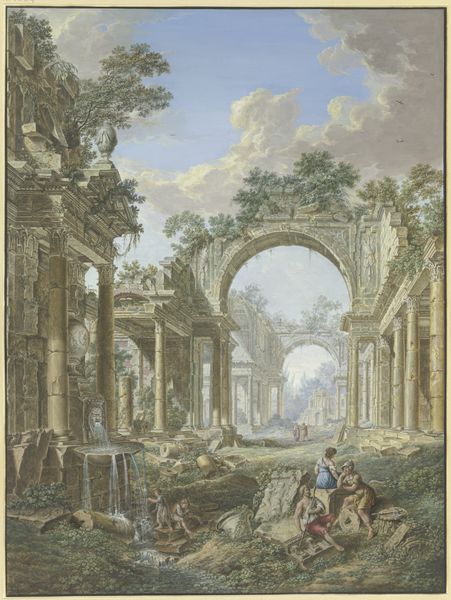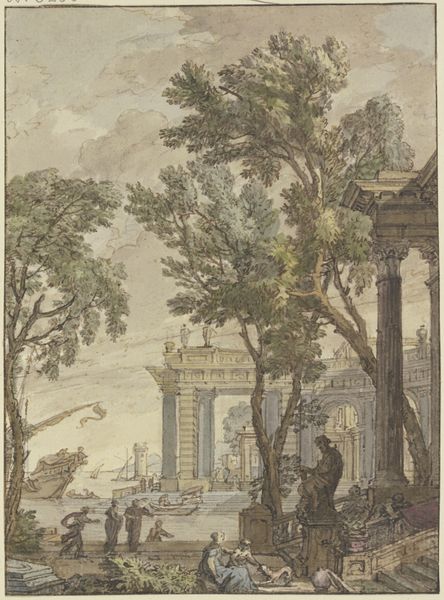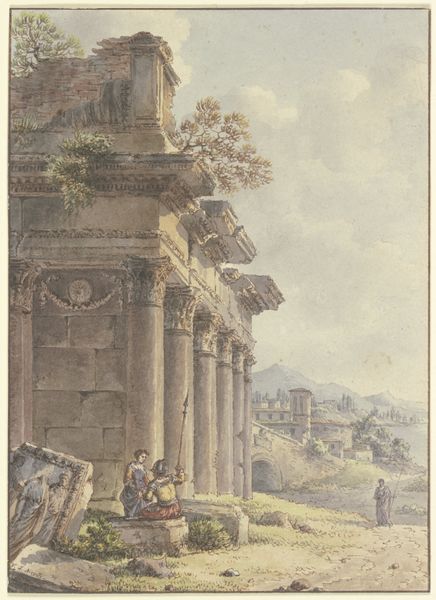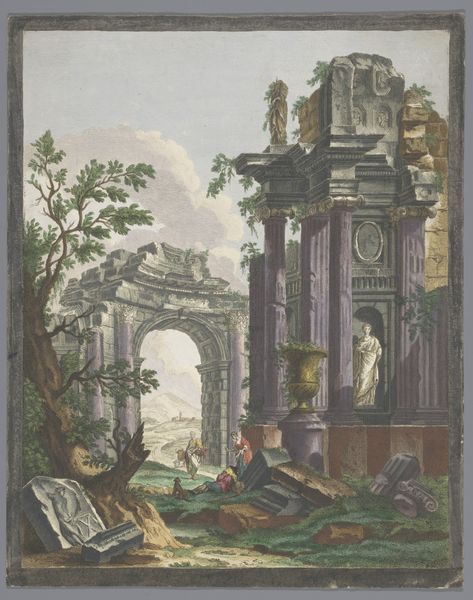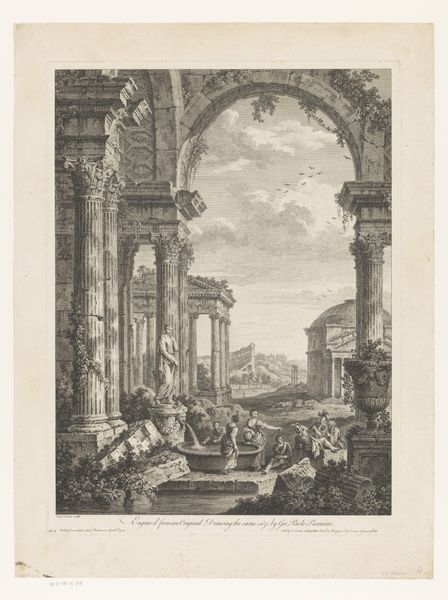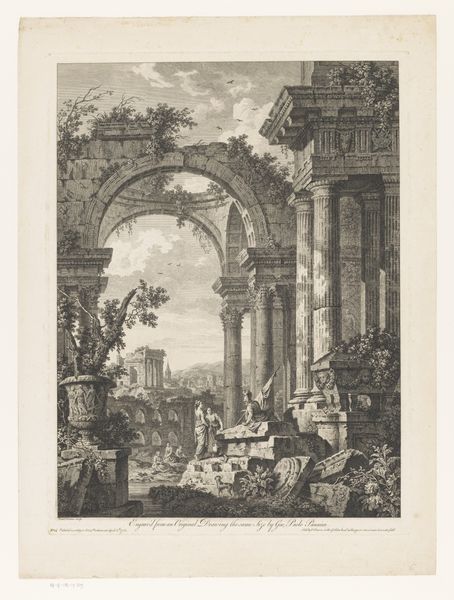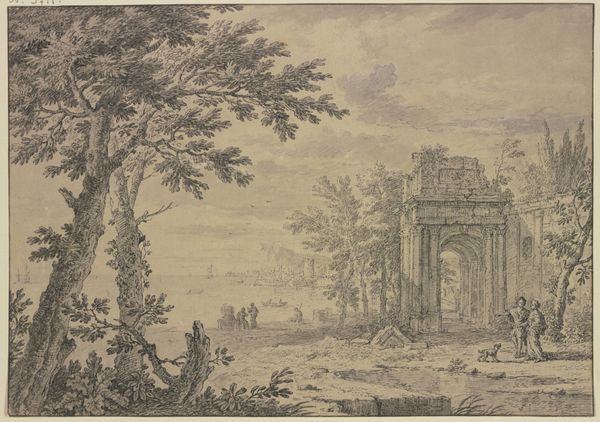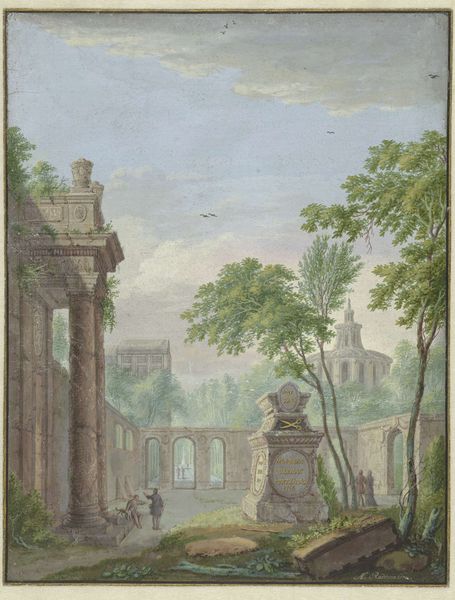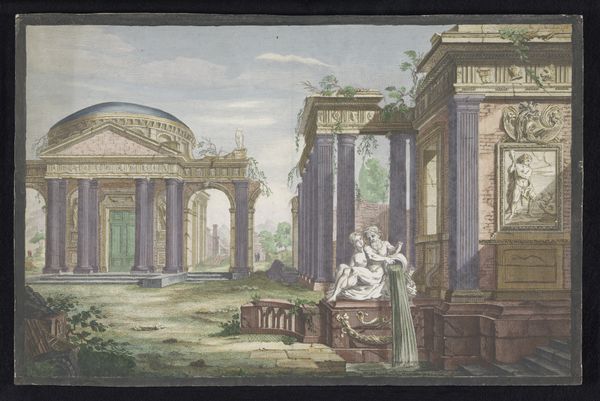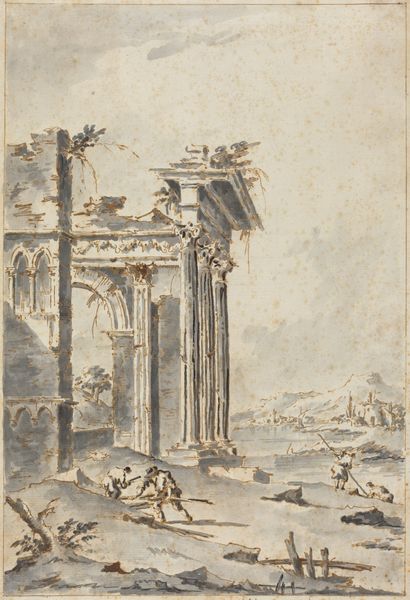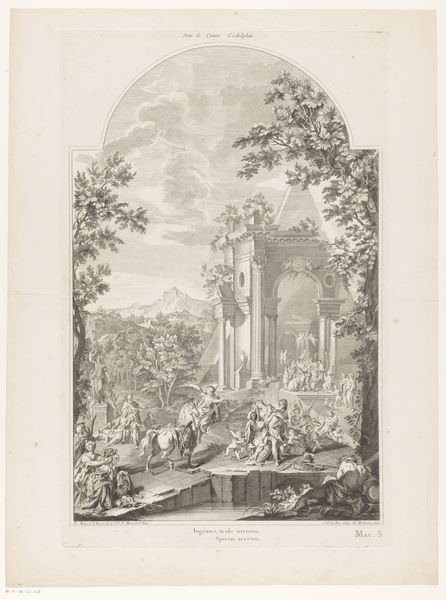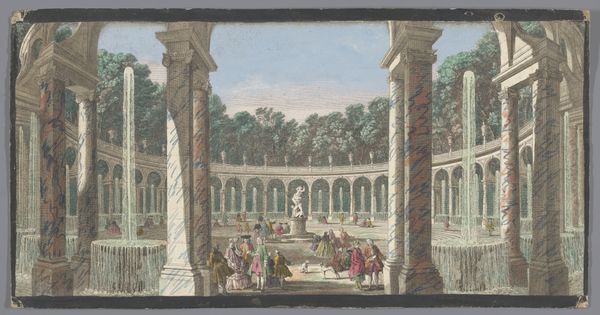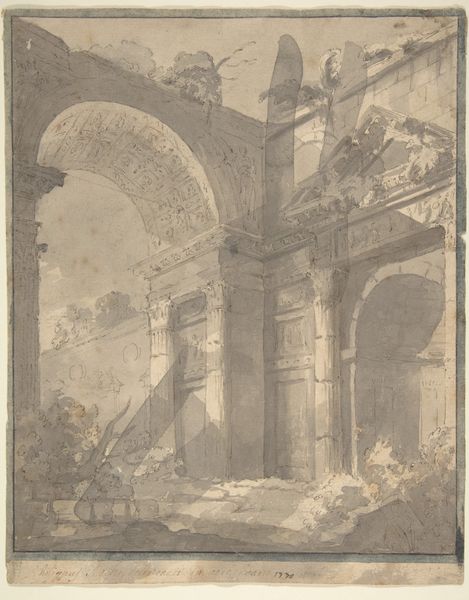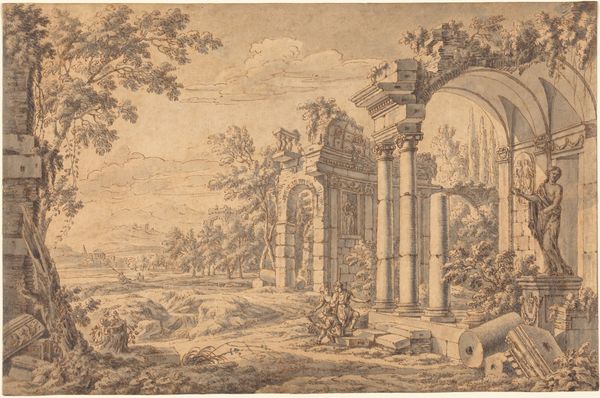
drawing, tempera, architecture
#
drawing
#
tempera
#
landscape
#
german
#
classicism
#
romanticism
#
15_18th-century
#
watercolor
#
architecture
Copyright: Public Domain
Jean François Gout’s “Roman Ruins, with Figures and a Fountain” was made with pen, brush and watercolor. The layering of watercolor washes gives form to the ruins, with the white of the paper acting as a source of reflected light. Consider the physical and cultural significance of ruins. These ancient architectural remains symbolize the passage of time, the decline of civilizations, and the transient nature of human endeavors. The use of ruins as a subject reflects the 18th-century fascination with classical antiquity and the picturesque aesthetic, which emphasized the beauty of decay and imperfection. Gout, by depicting these ruins, engages with a tradition of landscape painting that finds beauty in the remnants of past glory. The meticulous detail in this drawing belies a considerable amount of skilled labor. The artist has not only rendered the scene with precision but has also imbued it with a sense of atmosphere and depth. This work invites us to contemplate not just the depicted scene, but also the artist’s own labor, and the cultural values embedded in the materials and processes used.
Comments
No comments
Be the first to comment and join the conversation on the ultimate creative platform.
